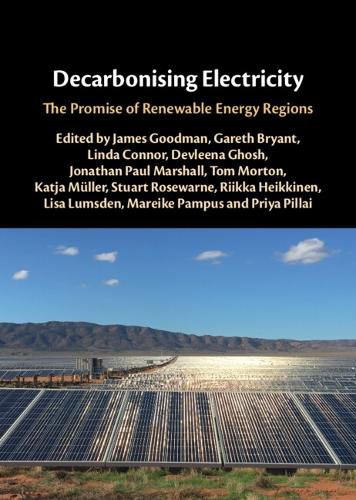Readings Newsletter
Become a Readings Member to make your shopping experience even easier.
Sign in or sign up for free!
You’re not far away from qualifying for FREE standard shipping within Australia
You’ve qualified for FREE standard shipping within Australia
The cart is loading…






The current shift to renewable energy is dominated by globalised energy companies building large-scale wind and solar plants. This book discusses the consequences and possibilities of this shift in India, Germany, and Australia, focusing on regions which have now largely decarbonised electricity generation. The authors show how centralised models of energy provision are maintained, and chart their impacts in terms of energy geography, social stratification, and socio-ecological appropriation. The chapters emphasise the prominent role played by state regulation, financial incentives, and public infrastructure for corporate renewables, arguing that public provision should be re-purposed for distributed renewables, social equity in affected regions, and for wider social benefit. This interdisciplinary book provides fertile building ground for research in - and application of - future energy transitions. It will appeal to students, researchers, and policy makers from anthropology, sociology, politics and political economy, geography, and environmental and sustainability studies.
$9.00 standard shipping within Australia
FREE standard shipping within Australia for orders over $100.00
Express & International shipping calculated at checkout
The current shift to renewable energy is dominated by globalised energy companies building large-scale wind and solar plants. This book discusses the consequences and possibilities of this shift in India, Germany, and Australia, focusing on regions which have now largely decarbonised electricity generation. The authors show how centralised models of energy provision are maintained, and chart their impacts in terms of energy geography, social stratification, and socio-ecological appropriation. The chapters emphasise the prominent role played by state regulation, financial incentives, and public infrastructure for corporate renewables, arguing that public provision should be re-purposed for distributed renewables, social equity in affected regions, and for wider social benefit. This interdisciplinary book provides fertile building ground for research in - and application of - future energy transitions. It will appeal to students, researchers, and policy makers from anthropology, sociology, politics and political economy, geography, and environmental and sustainability studies.